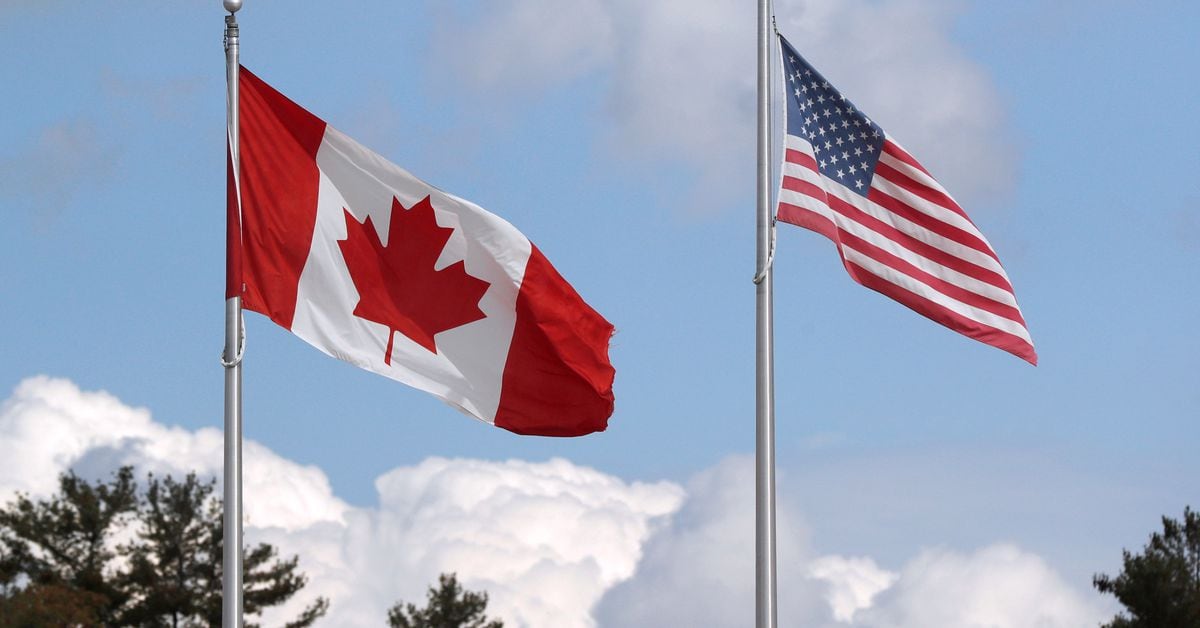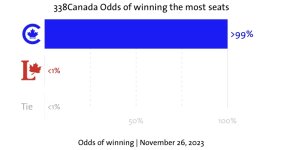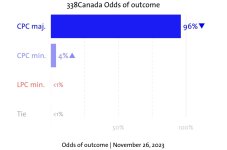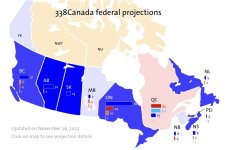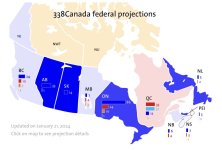Here’s something different. Digital Taxation.

en.wikipedia.org
While the OECD has agreed on a common approach to tax digital companies, no treaty has been implemented yet to enforce it. Consequently, Canada has proposed to enact its own digital service tax. The plan has met opposition from the
United States Trade Representative's office.
(The OECD is The Organization for Economic Co-operation and Development)
View attachment 18904

en.wikipedia.org
Anyway, that’s some background on the players involved.
Digital goods are software programs, music, videos or other electronic files that users download exclusively from the Internet. Some digital goods are free, others are available for a fee. The
taxation of digital goods and/or services, sometimes referred to as digital tax and/or a
digital services tax, is gaining popularity across the globe.
The digital economy makes up 15.5% of global GDP in 2021 and has grown two and a half times faster than global GDP over the past 15 years, according to the World Bank. Many of the largest digital goods and services companies are multinational, often headquartered in the United States and operating internationally.
The United States could target digital trade if it decides on retaliatory measures against a proposed Canadian digital services tax, U.S. ambassador to Canada David Cohen said.
The Liberal government confirmed this week (mid-July 2023) it plans to go ahead with the tax targeting Big Tech in 2024, despite 138 other countries and jurisdictions agreeing last week to delay similar measures.
In an interview with the
National Post’s John Ivison, Cohen pointed out United States Trade Representative Katherine Tai has previously warned Canada should not implement a unilateral tax.
Cohen said Tai’s “statement was direct and clear and strong that if Canada decides to proceed alone, you leave the United States with no choice but to take retaliatory measures in the trade context, potentially in the digital trade context, in order to respond to that.”
The Canadian tax, estimated to bring in $3.4 billion over five years, is aimed at large companies that operate online marketplaces, social media platforms and earn revenue from online advertising. This includes Amazon, Google, Facebook, Uber and Airbnb. The Liberal government first promised the tax in the 2021 budget. It would be retroactive to 2022, meaning the companies would be on the hook for more than $1 billion once it comes into effect.
(This has a Targeted Bill C-18 Feel but is something new and different)
Canada has said its DST would only come into effect if a multilateral tax agreed to by OECD countries isn’t in place by 2024. The OECD approach would implement a global minimum corporate tax rate of 15 per cent.
But last week, OECD countries agreed to delay any plans for their own unilateral taxes by another year. Only Canada, Belarus, Pakistan, Russia and Sri Lanka — of 143 countries party to the deal — weren’t supportive of the one-year delay, according to Reuters.
Liberals plan to go ahead with digital service tax, despite 138 other countries agreeing to delay similar measures.

nationalpost.com
View attachment 18905
Canada-United States-Mexico Agreement (CUSMA) – Chapter 19 – Digital Trade

www.international.gc.ca
Then above, Article 19.4….& please excuse the disjointed way I’m putting this together early on a Sunday morning….
Canadian Finance Minister Chrystia Freeland on Wednesday said the agreement to freeze pillar one implementation by another year put Canada at a disadvantage relative to countries that have been collecting revenue under their pre-existing digital services taxes.
Colvin said Washington could retaliate under the U.S.-Mexico-Canada trade agreement if Canada went ahead and implemented the new tax.
The U.S. government has repeatedly objected to the planned Canadian tax, including through a written statement last year, and as recently as last week (again, this is from mid-July 2023) when U.S. Trade Representative Katherine Tai raised the issue during a meeting with Canadian Trade Minister Mary Ng.
Building on the work done since 2015 to invest in Canadians and to strengthen the middle class and those working hard to join it, the team will continue to move forward on housing and putting more money back in families’ pockets. To deliver a better future for everyone, the team will also...

www.pm.gc.ca
More than 140 countries were supposed to start implementing next year a 2021 deal overhauling decades-old rules on how governments tax multinationals that are widely considered to be outdated as digital giants like Apple or Amazon can book profits in low-tax countries.
Because the process has dragged on, the more than 30 governments that have or plan national digital services taxes had agreed to put them on ice until the end of this year, or drop them altogether once the first pillar of the tax deal takes shape.
Amid concerns among some countries, the plan now calls for governments to sign off before the end of the year with a goal of having the treaty enter force in 2025, instead of in 2024 as previously planned.
Out of the 143 countries that are party to the deal, only five countries - Belarus, Canada, Pakistan, Russia and Sri Lanka - were not in a position at the meeting to offer their support, an OECD official said.
(Interesting Bedfellows)
The U.S.-based National Foreign Trade Council on Thursday blasted Canada for its refusal to back a global agreement to hold off on implementing digital services taxes for at least another year, and said the move could invite retaliation.

www.reuters.com
Is Canada right is jumping the gun that most of these other 140+ countries aren’t doing (?) or are Canada and these four other (
strange company) countries ahead of the curve???







